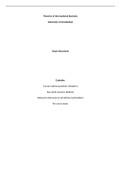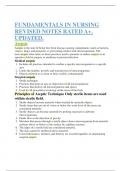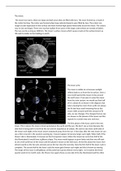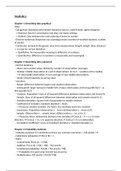Misrepresentation
13.1 Introduction:
English law doesn’t recognise the existence of a general duty to disclose information during
the process of contractual negotiation, yet the process of contractual negotiation is not left
unregulated.
A duty is imposed not to make any false statements of fact or law to other contracting
parties and thereby to induce him to enter into the contract.
Distinction to be drawn between a promise and a representation.
A promise= a statement by which the maker of the statement accepts/appears to accept an
obligation to do or not to do something.
Representation= a statement which simply asserts the truth of a given state of facts.
Distinction illustrated in Kleinwort Benson Ltd v Malaysia Mining Corp Berhad [1989]
The two have different legal consequences.
Representation as a statement of fact which induces the other party to enter into a contract
or otherwise act to his detriment. The representor invites reliance upon that statement. If
his statement of fact is false then it is a misrepresentation and the most appropriate remedy
is to put the other party in the position which he would have been in had he not acted upon
the misrepresentation to his detriment.
A promise creates an expectation that the promise will be fulfilled and the promisor accepts
(or is deemed to accept) an obligation to carry out his promise. Having accepted such an
obligation, the law will call upon the promisor to fulfil that obligation and will seek, by the
remedy granted, to protect the expectation so created.
Can be difficult to distinguish between the two.
Kleinwort Benson-> trial judge held that it was a contractual promise but the CA held that it
was a representation of fact.
Misrepresentation lies on the boundary of contract, tort and restitution (unjust enrichment).
Consumers have been given rights of redress against traders in respect of various unfair
commercial practices. Includes the right to unwind the contract in certain circumstance,
right to discount and the rights to damages.
13.2 What is misrepresentation?
May be defined as an unambiguous false statement of fact or law (s. 13.3) which is
addressed to the party misled (s. 13.4), which is material (although this requirement is now
debatable) and which induces the contract (s. 13.5).
13.3 A statement of existing fact or law:
The rule was traditionally stated in the form that a representation must be an unambiguous
false statement of existing fact. It is now clear that a misrepresentation of law can constitute
an actionable misrepresentation. This wasn’t always the case. Previously, a
misrepresentation of law didn’t suffice to create a cause of action. This was first broken in
Kleinwort Benson [1999] HL where it was held that money paid under a mistake of law could
be recovered on essentially the same basis of money paid under a mistake of fact.
The need for a statement of existing fact underlines the point that a failure to disclose
information will not generally constitute a representation, although, the courts have been











